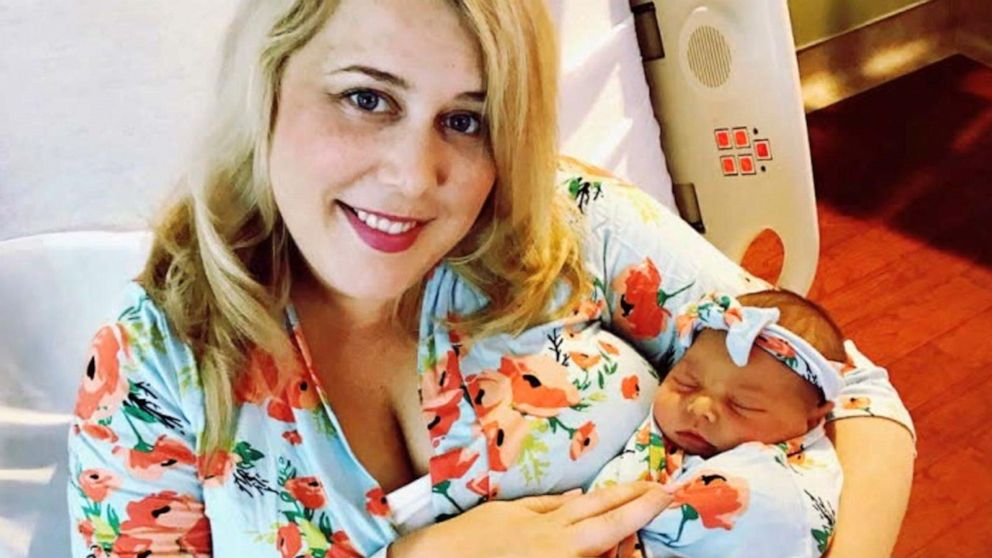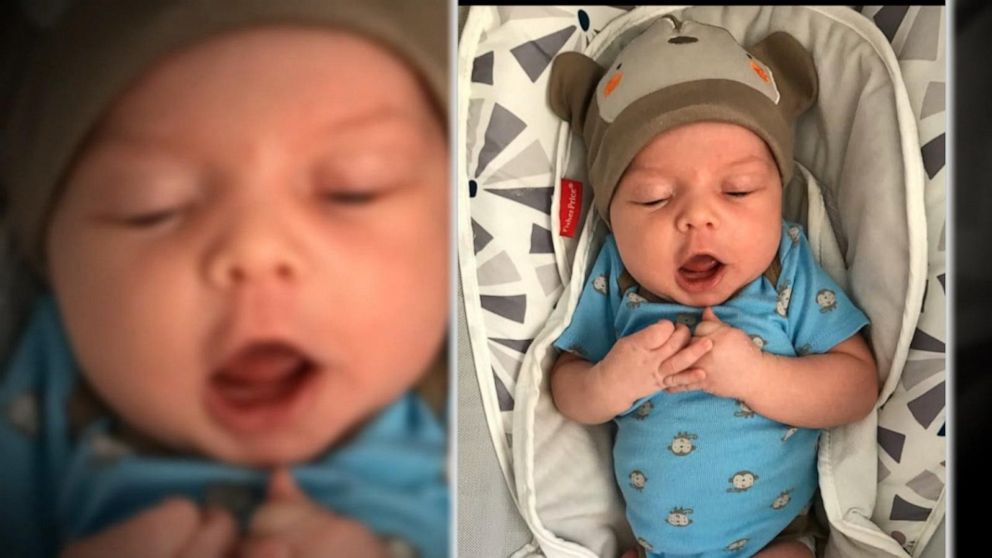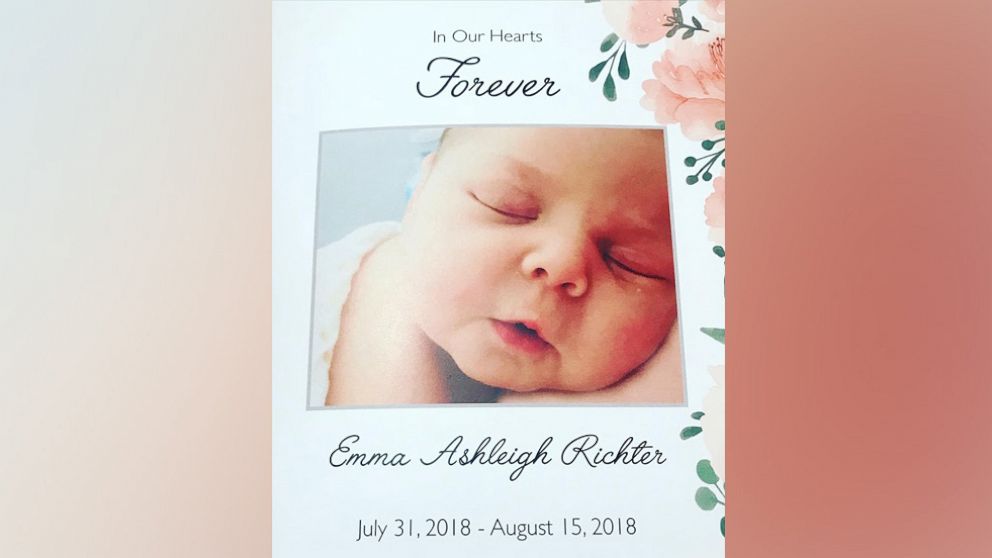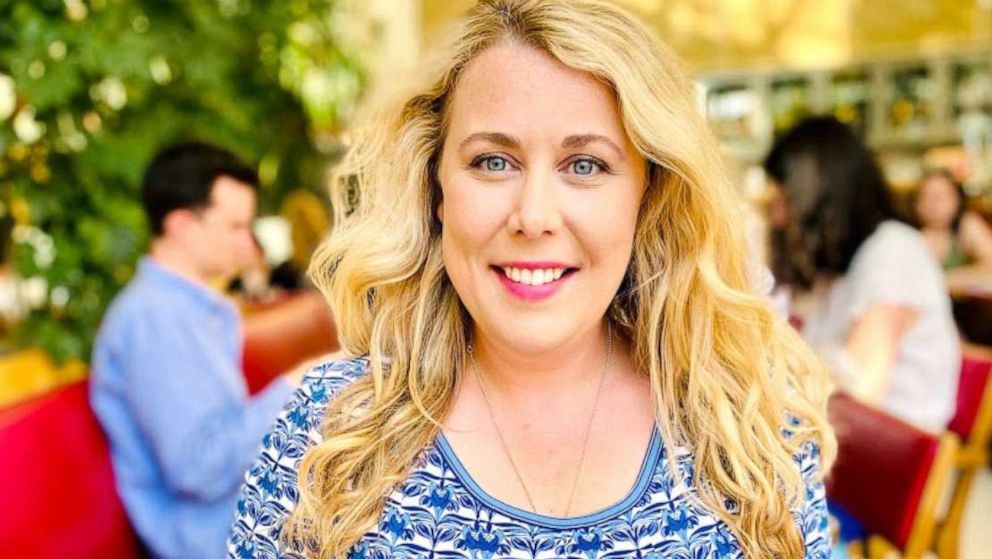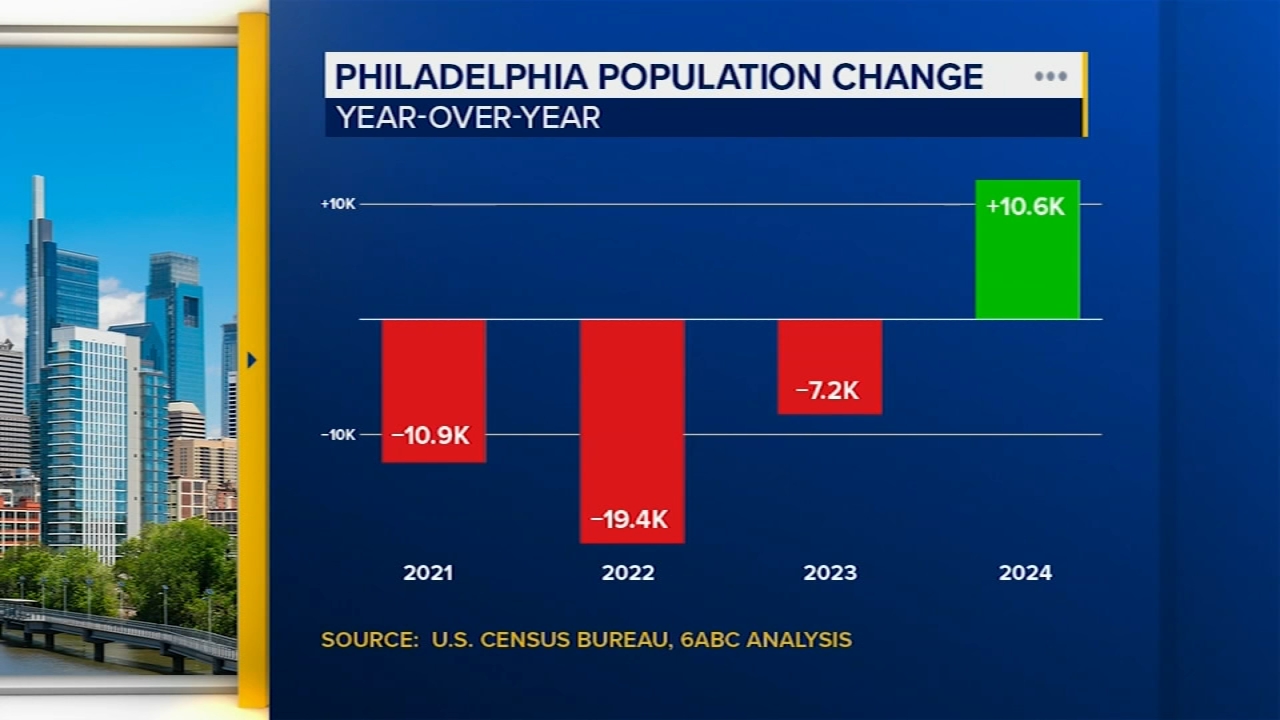Erika Richter's newborn died in 2018 using an inclined sleeper; now grieving mom advocates for ban
Inclined sleepers for babies and crib bumper pads will be banned under new legislation passed by Congress.

Inclined sleepers for babies and crib bumper pads will be banned from being sold under legislation passed Wednesday by Congress.
The bill, known as the Safe Sleep for Babies Act, will now go to the White House for President Joe Biden to sign.
Among the advocates calling on Biden to sign the legislation quickly into law is Erika Richter, whose 2-week-old daughter, Emma, died while using a Fisher-Price Rock 'n Play sleeper, a type of inclined sleeper that would be banned under the new legislation.
"For this bill to be passed, it's a huge win, and for it to have bipartisan support just highlights that this change was long overdue and undeniably necessary," Richter, of Portland, Oregon, told "Good Morning America." "There are 4.7 million of these products sold."
Richter has been a vocal advocate for change since the death of Emma, her only child, in August 2018.
In 2020, Richter filed a lawsuit against Fisher-Price for wrongful death and gross negligence. The case is ongoing in Los Angeles County Superior Court and Richter declined to provide details on her daughter's cause of death due to the litigation.
In its answer to the lawsuit, Fisher-Price has denied all of the allegations and specifically denied "that because of an act or omission by them, their agents, or independent contractors, Plaintiffs were injured or damaged in any sum, or at all."
WATCH: How the CPSC hopes to eliminate hazardous baby sleep products

It was only after Emma's death that Richter said she learned about reports of other infant deaths associated with Rock 'n Play sleepers, which were recalled in 2019 by the Consumer Product and Safety Commission (SCPC) after being linked to over 30 deaths.
"I thought to myself, 'If I had just known sooner,'" said Richter. "I wish that somebody had done what I'm doing and what some of the other mothers are doing more publicly around the time that I had Emma."
Last June, Richter shared her story publicly for the first time at a congressional hearing that followed up on a report from the House Committee on Oversight and Reform. The report found Fisher-Price ignored repeated warnings that its Rock 'n Play sleeper was dangerous before the device was recalled.
The report found more than 50 infant deaths were linked to the sleeper, which puts infants at a 30-degree incline.
The cause of death for some of the babies was asphyxia, or the inability to breathe, due to the child's position, the report said.
"We trusted a name brand, and we were wrong," Richter said in her testimony, holding up baby clothes as a reminder of what she has left to remember her daughter.
When Richter first shared her story publicly last June, a spokesperson for Mattel, the parent company of Fisher-Price, told ABC News in a statement there "is nothing more important" to the company than the safety of its products and that its "hearts go out to every family who has suffered a loss."
"The Rock 'n Play sleeper was designed and developed following extensive research, medical advice, safety analysis and more than a year of testing and review," a spokesperson said, adding that independent medical and other expert analyses verified that the sleeper was safe when used in accordance with its instructions and warning. "It met or exceeded all applicable regulatory standards. As recently as 2017, the U.S. Consumer Product Safety Commission (CPSC) proposed to adopt the ASTM voluntary standard for a 30-degree angled inclined sleeper as federal law."
A Mattel spokesperson confirmed to ABC News Thursday the Rock 'n Play Sleeper is no longer on the market, noting it, "was sold from its introduction in 2009 up until its voluntary recall in April 2019."
Guidelines from both the CPSC and the American Academy of Pediatrics (AAP) say caregivers should always place infants to sleep on their backs on a firm, flat surface and should never add "blankets, pillows, padded crib bumpers, or other items to an infant's sleeping environment."
In addition, caregivers should not use infant sleep products with inclined seat backs of more than 10 degrees, and should not use infant car seats, bouncers and other inclined products for sleep, according to the guidelines.
Around 3,400 babies in the U.S. die each year while sleeping, in sudden and unexpected deaths, according to the AAP, which issued a statement Wednesday applauding the passage of the Safe Sleep for Babies Act.
"The message from pediatricians has long been clear: the safest sleep environment for babies is a firm, flat, bare surface," AAP's president, Dr. Moira Szilagyi, said in a statement. "Despite what the science shows, crib bumpers and inclined sleepers have remained on the market and store shelves, misleading parents into thinking they are safe and leading to dozens of preventable infant deaths."
Experts say that padded crib bumpers, which are also banned under the new legislation, pose a particular potential danger because babies may turn their faces into the bumper's padding, raising the risk of suffocation, may become entrapped underneath or around the bumper, or may become entangled in the bumper's ties, increasing the risk of strangulation.
Even when federal crib standards changed in 2011, mandating a smaller distance between crib slats so babies would not get their heads stuck between them, crib bumpers -- which arguably had lessened that risk -- became unnecessary, but they remained on the market, despite the safety risk, according to Dr. Ben Hoffman, a professor of pediatrics at Oregon Health & Science University and chairman of the AAP's Council on Injury, Violence, and Poison Prevention.
"There is an assumption that [products] are safe until they are proven dangerous, as opposed to what I think the public believes, which is if something is sold, it is safe," Hoffman told ABC News last year.
Richter said she too has learned from her advocacy work since Emma's death that parents need to be cautious consumers when it comes to the products they use with their kids.
"I have learned that we have a long way to go when it comes to consumer protections, and that legacy brands do not equal trust," she said. "People die because they make assumptions that the brands themselves are doing their due diligence, and you cannot put that type of control in the hands of profit maker or profit owner.
Richter said she plans to continue to push for more consumer controls, including calling on Congress to repeal a provision, 6B, in the Consumer Product Safety Act that she claims allows companies to "self-regulate" when it comes to product safety.
Richter said she also plans to keep speaking out to raise awareness and make sure banned infant sleep products don't end up in the hands of other mothers.
"I'm still a mom. I'm still Emma's mom. I still have that responsibility, and I still think like a mom and I still want to protect other moms and other children," she said. "That is so important to me."


